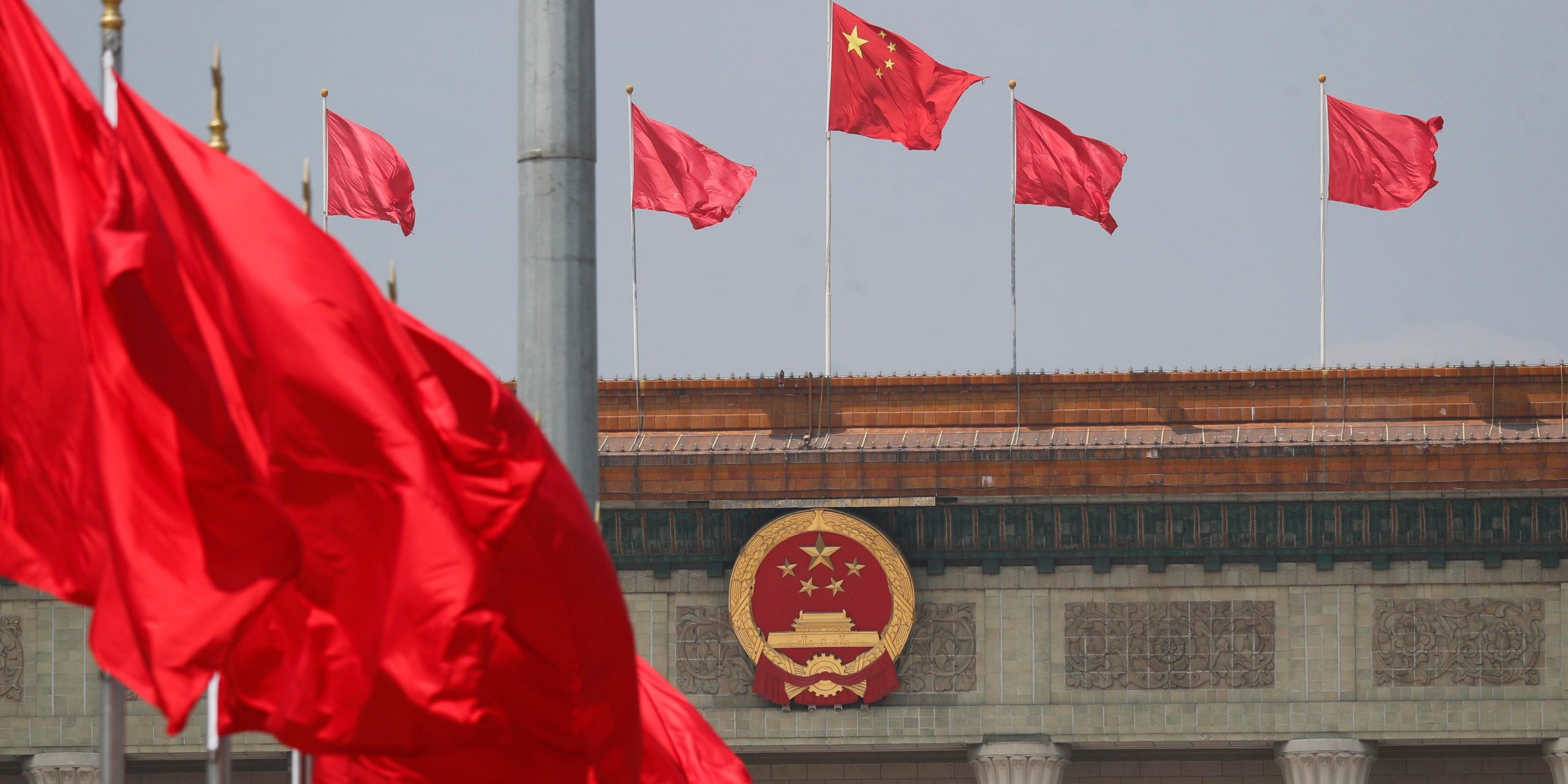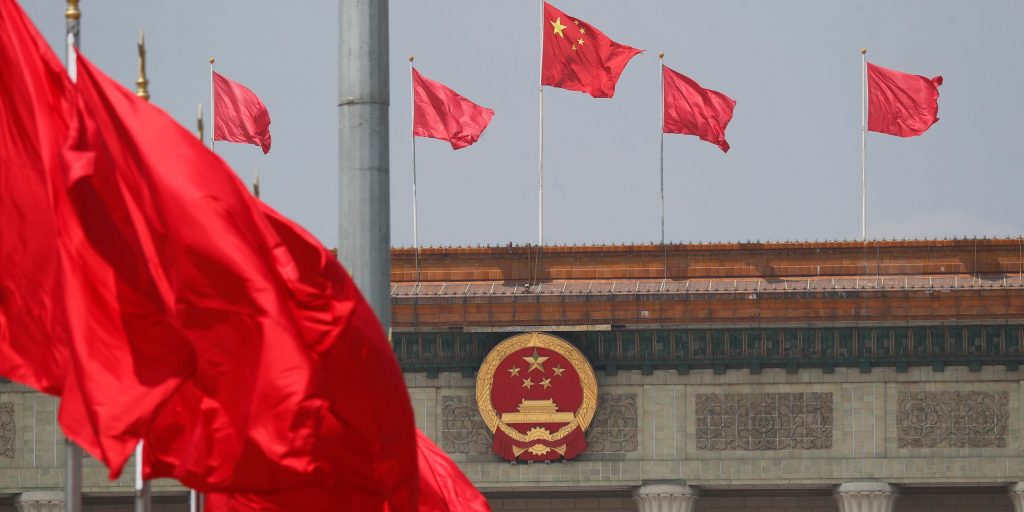
Du Yang/China News Service via Getty Images)
- Regulators in Beijing mull requiring companies looking to go public in the US to hand over their data, Reuters reported.
- The information will be monitored by third-party firms, preferably state-backed.
- Regulators believe this will limit the chances Chinese companies will transfer their data overseas.
- Sign up here for our daily newsletter, 10 Things Before the Opening Bell.
Regulators in Beijing mull requiring data-rich Chinese companies looking to go public in the US to hand over their data to third-party firms amid a broader crackdown on overseas listings, Reuters first reported.
Officials believe Chinese companies seeking to IPO would be limited in their ability to transfer data if third-party firms, preferably state-backed ones, are brought in to manage and monitor their data, sources told Reuters.
The proposed plan, one among the many being considered, comes amid Beijing's growing concerns that listing overseas will force Chinese firms to hand over their data foreign regulators, sources told Reuters.
For instance, in July, the US Securities and Exchange Commission announced it will stop processing IPO listings from Chinese companies until they meet its new disclosure requirements, putting many firms at risk of being delisted.
In August, SEC chief Gary Gensler further warned investors in US-listed Chinese stocks, reminding Americans that the Chinese government doesn't let foreigners own or invest in many of its companies.
Beijing in the recent months has intensified its clampdown on Chinese technology companies and internet platforms that went public in the US.
Among the most high-profile examples was ride-hailing giant Didi, which has been mired in regulatory troubles following its blockbuster IPO in the US.
Didi went public on June 30 despite an investigation from the Cyberspace Administration of China about its data security practices. Since then, Chinese regulators have been considering serious penalties for the company, according to various reports.
Didi, however, has been said to be considering giving up its control of data to placate Chinese regulators.
The ongoing crackdown has dampened investor sentiment, especially towards tech companies, which are known to have troves of data in their possession.
Regulators have yet to finalize their decision, sources told Reuters.

